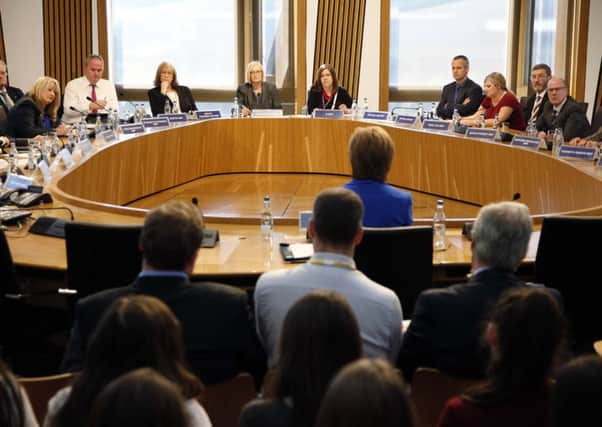MSPs defend committees role in 'challenging' the SNP


It follows criticism that the Nationalists are using their majority control to drive through unpopular and flawed legislation without any Parliamentary consensus.
The prospect of elected heads on Holyrood committees, through a blind ballot, has again been ruled out in a report by Holyrood’s Standards, Procedures and Public Appointments (SPPA) today.
Advertisement
Hide AdAdvertisement
Hide AdBut the committee says that new laws should be reviewed through a “post-legislative report” every three to five years. They also say that committees should generally have no more than seven members to help ensure MSPs are not serving on any more than one at a time.
SPPA convener, Stewart Stevenson said: “The aim of any change must be to make committees more effective at scrutinising legislation and government policy, and holding the government of the day to account.
“We believe there are already many examples of committees working with great effectiveness - challenging the Government, questioning Ministers, airing public concerns.
“Our recommendations, and a greater emphasis on post-legislative scrutiny, will see committees working at this level of effectiveness, more of the time.”
The SNP looks poised to win another majority in this year’s May election. But its opponents have complained of a “bulldozer” approach to pushing through laws at Holyrood. Labour has already pledged to repeal the Offensive Behaviour at Football and Threatening Communications (Scotland) Act 2012. This was introduced to crack down on sectarianism but has faced criticism from a court judge and fans over its implementation.
Holyrood Presiding Officer Tricia Marwick had called for elected committee convenors, through a blind ballot, to encourage more independent-minded MSPs to take on the role. The SPPA committee has already rejected this in a previous report and re-affirmed this view in today’s findings on the operation of committees.
“Nothing we have heard has persuaded us that the introduction of elected conveners would result in more effective committees or conveners,” the report states.
It also points to the role committees have played in changing Scottish Government policy on stop and search and human trafficking, as well as major health issues such as chronic pain and the way new medicines are made available on the NHS.